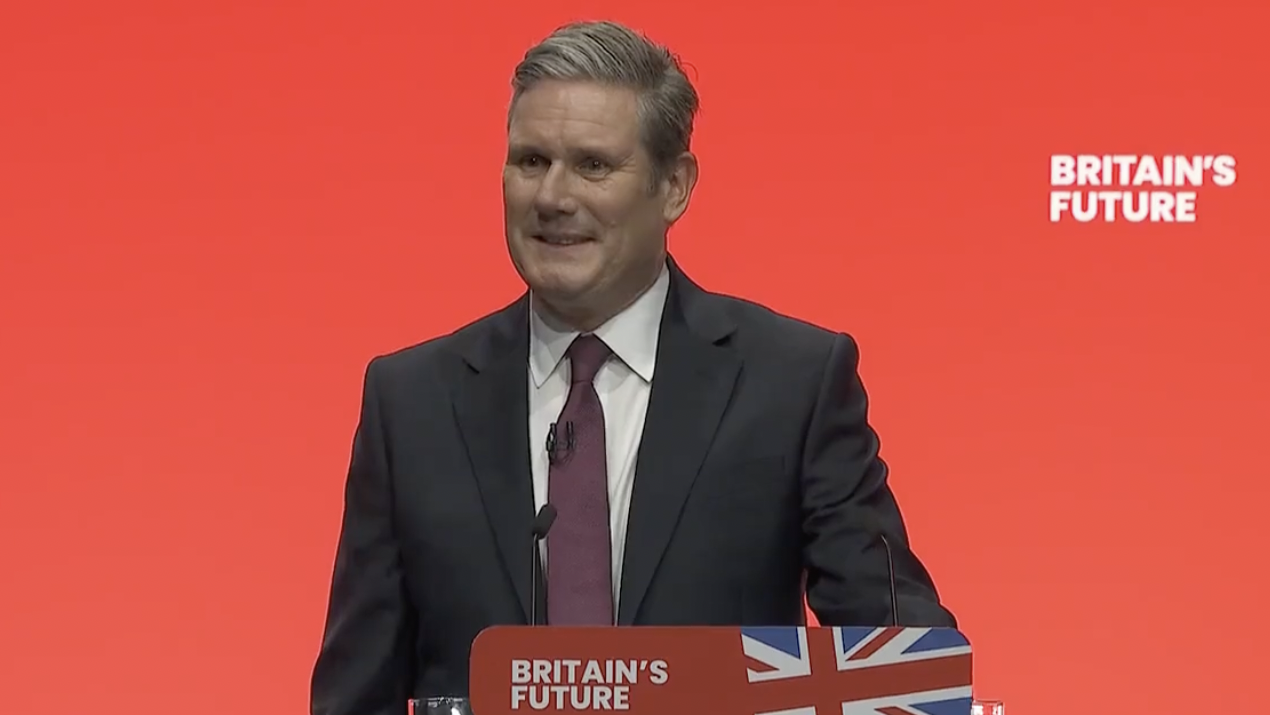As The Big Issue explored for World Homeless Day, one of the ways to tackle stubborn homelessness figures is to build more houses.
Starmer has promised 1.5 million new homes over five years. To achieve this there will be more new towns, following in the footsteps of places like Harlow, Crawley and Milton Keynes built in the postwar period.
Gentle density is the watchword for existing urban centres, with Georgian-style townhouses on the agenda.
The establishment is getting behind Labour
Mark Carney, former Bank of England governor once courted by George Osborne, called shadow chancellor Rachel Reeves a “serious economist” and said it is “beyond time” to put her ideas into action.
It was a controversial endorsement in some quarters, but one that can be read as a sign the traditional establishment is warm to the idea of a Labour government.
Even the free-market Adam Smith Institute think-tank is rowing in behind Starmer’s agenda, praising his “serious, innovation-focused, positive vision for the country”.
Advertising helps fund Big Issue’s mission to end poverty
Getting rid of non doms
You remember non-doms. No, not malfunctioning prophylactics, it’s the tax status utilised by those whose permanent “domicile” is not in the UK.
It means you don’t pay UK taxes on money made elsewhere, and was famously enjoyed by Akshata Murty, Rishi Sunak’s wife.
Labour has said it will abolish this, raising up to £3.2 billion a year.
The party is wading into the ‘war on motorists’
A so-called “war on motorists” was a key feature of Sunak’s conference agenda – both in his net zero U-turn and his conspiracy theory pivot towards 15-minute cities.
Labour’s contribution to the debate, courting a key electoral demographic, is a crackdown on “rip-off car insurance”, reviewing hidden fees.
The plans will save drivers up to £685 a year, said shadow transport secretary Louise Haigh.
Advertising helps fund Big Issue’s mission to end poverty
VAT on private schools
Although a U-turn on Starmer’s leadership pledge to get rid of charitable status, Labour is insistent its decision to end the VAT exemption for private schools will raise £1.7 billion.
The Covid fraud crackdown
Crackdowns are an important part of modern politics, which at times seems to sustains itself purely through the power of weird idioms.
And so, to regain the estimated £7.2billion lost to Covid fraud, Rachel Reeves announced Labour will appoint a “Covid corruption commissioner”.
“Just 2% of all fraudulent covid grants have been recovered. So, I can announce today that we will appoint a Covid corruption commissioner,” Reeves said.
“Supported by a hit squad of investigators, equipped with the powers they need and the mandate to do whatever it takes to chase down those who have ripped off the taxpayer, take them to court, and claw back every penny of taxpayer’s money that they can.”
Economic responsibility is the message
Elections often come down to who the public feels it can trust with its money. Along with the crackdown on Covid fraud, Reeves was keen to emphasise she’s the woman to take the reins of Britain’s economy.
Advertising helps fund Big Issue’s mission to end poverty
“Out of the wreckage of Tory misrule, Labour will restore our economic credibility,” Reeves said, announcing a “new business model for Britain” under a Labour government that “will not waver from iron-clad fiscal rules.”
In practical terms, this means the government will introduce a “fiscal lock”, whereby any big tax or spending changes will “be subject to an independent forecast from the Office of Budget Responsibility”.
It led to a joke from a Labour spokesperson, reported by PoliticsHome: “It’s a sign of a changed Labour Party when you get a round of applause for the Office of Budget Responsibility”.
This is continuing Labour’s “safe hands” approach seen during Starmer’s leadership. But does talk of “fiscal rules” and there being no money left stack up? We asked experts just that here – and they’re not so sure.
And of course, the musical sideshows
In Lisa Nandy playing a Britney Spears DJ set, Labour finally had its answer to Priti Patel and Nigel Farage’s Tory conference singalong moment. Sort of.









